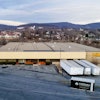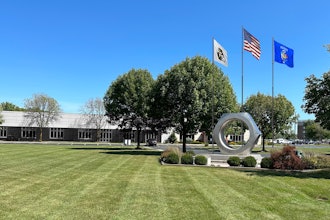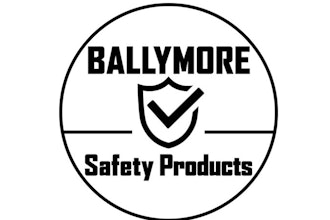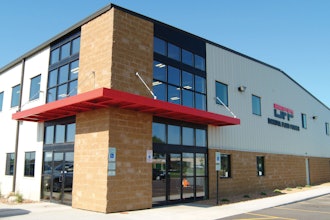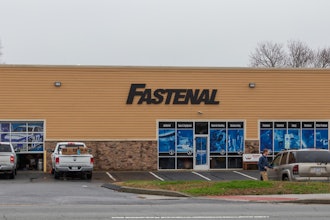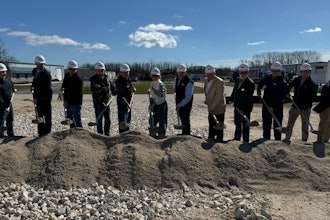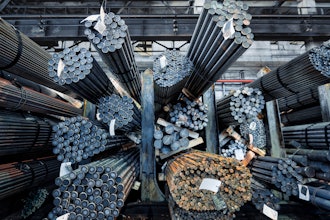ALBANY, N.Y. (AP) — Born of the energy crisis of the 1970s, gas driller Lenape Resources flourished in western New York for more than three decades — until the revolutionary technology that sparked the nation's shale gas boom brought the industry to a screeching halt in New York under a moratorium now in its sixth year.
Today, Lenape has just five employees, down from 100 in years past. "Those five, we're trying to give them work in Pennsylvania," said John Holko, the company's president. "We're not going to be here much longer."
As another year closes with a moratorium on hydraulic fracturing for natural gas in New York and no timetable for Gov. Andrew Cuomo to decide whether to lift it, drilling interests have all but given up on the state, and environmental groups are pressing for a permanent ban.
Advancements in horizontal drilling and fracking — which releases gas from rock by injecting a well with a mix of water, sand and chemicals at high pressure — have yielded so much gas from the Marcellus Shale underlying much of the Mid-Atlantic region that gas prices have plummeted. As a result, the less productive vertical wells still allowed in New York are no longer in demand, Holko said.
While other states have allowed shale development even as they scramble to draft regulations, New York has had deep shale drilling on hold since it started developing new rules in 2008. Amid intense pressure from anti-fracking groups, Cuomo has said he wants his health and environmental commissioners to take all the time they need to decide whether fracking can be done safely.
Critics of fracking cite potential air and water contamination and disruptive industrial activity near population centers, while supporters say state regulations mitigate the risks.
At the same time, dozens of towns have enacted their own bans or moratoriums in case the state does approve fracking — although most are outside the region along the Pennsylvania border considered most profitable for gas exploration.
Some drilling proponents, including industry and landowners hoping to profit from leases, are putting up a fight in state courts over town bans and the state's stalled regulations. The state's highest court will decide this spring whether two town bans, in Dryden and Middlefield, are legal.
Norse Energy, the Norway-based company fighting the Dryden ban, is in the final stages of bankruptcy liquidation, having invested all its resources in New York leases it has been unable to develop. The company is now suing the state over its ban.
Membership in the Independent Oil and Gas Association of New York has dropped by about 20 percent in the past year, said Brad Gill, its president. "Numerous service companies have set up shop across the border in Pennsylvania," Gill said. "We'll never get those jobs back."
Holko was working for an oil and gas services company in the early '70s when the energy crisis hit and state and federal subsidies were poured into new technologies to tap unconventional fossil fuel deposits like shale and sandstone. He worked on some experimental Marcellus Shale wells funded by the state.
"That was the start of the shale revolution," Holko said. "It's just taken a long time for the industry to apply the proper technology to make it happen."
Even if Cuomo green-lights drilling, Gill said, the industry is wary of investing in New York because of what he calls regulatory and legislative hostility. "The cost of regulatory compliance could be up to $1 million more per well than in Pennsylvania," Gill said.
While companies can seek their fortune elsewhere, pro-drilling landowners won't see any lease-signing bonuses or royalty checks if Cuomo decides against shale gas development, said Victor Furman, who heads a landowner coalition in Chenango County.
"The delay isn't hurting me financially," said Furman, a retired technical writer for IBM. "But I know as a coalition leader that there are landowners who have lost homes that could have been saved if Cuomo had moved forward" with gas development.
But many landowners want Cuomo to ban shale gas development.
"We initially leased our farm back in 2006, before we'd ever heard of fracking," said Kathie Arnold, an organic dairy farmer and former Cortland County legislator. The lease expired during the state's moratorium, to Arnold's relief.
"A lot of farmers think this can be done safely, but I don't think the science supports that it can truly be done safely for the people that are here now and for future generations," Arnold said, citing potential air and water pollution, heavy truck traffic on rural roads, and potential contamination from well casing failures decades in the future.


